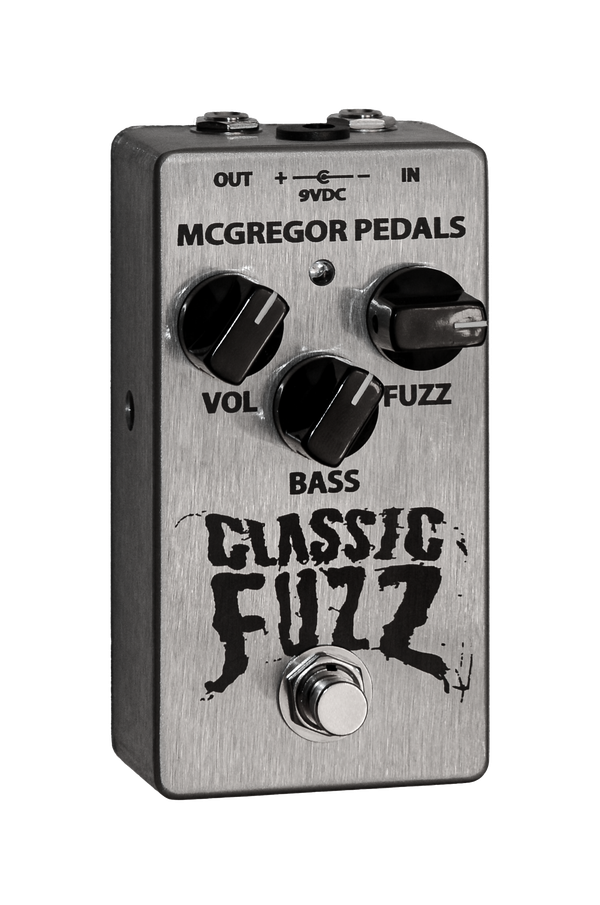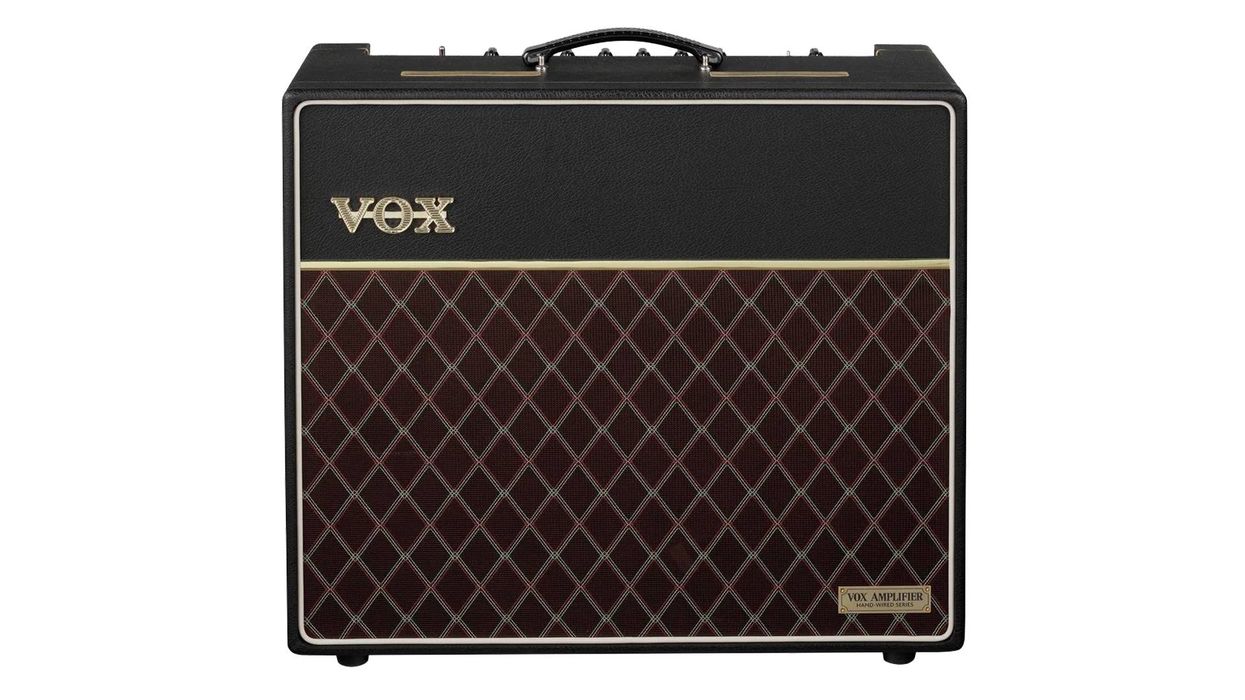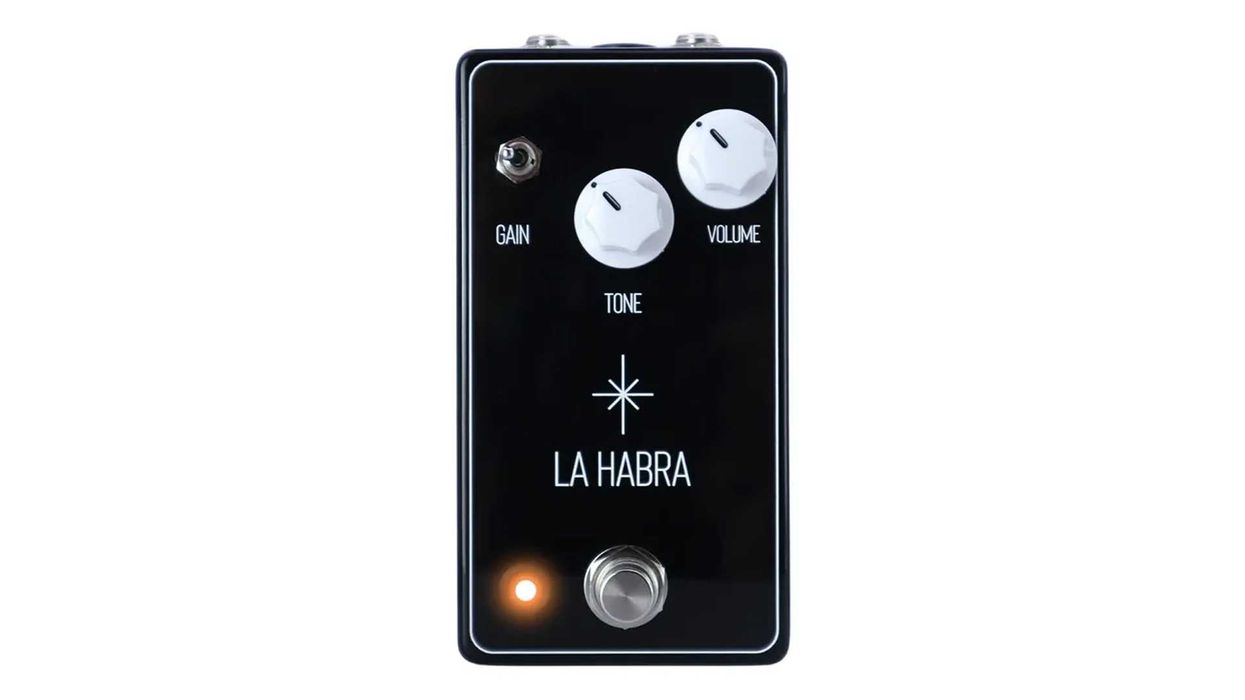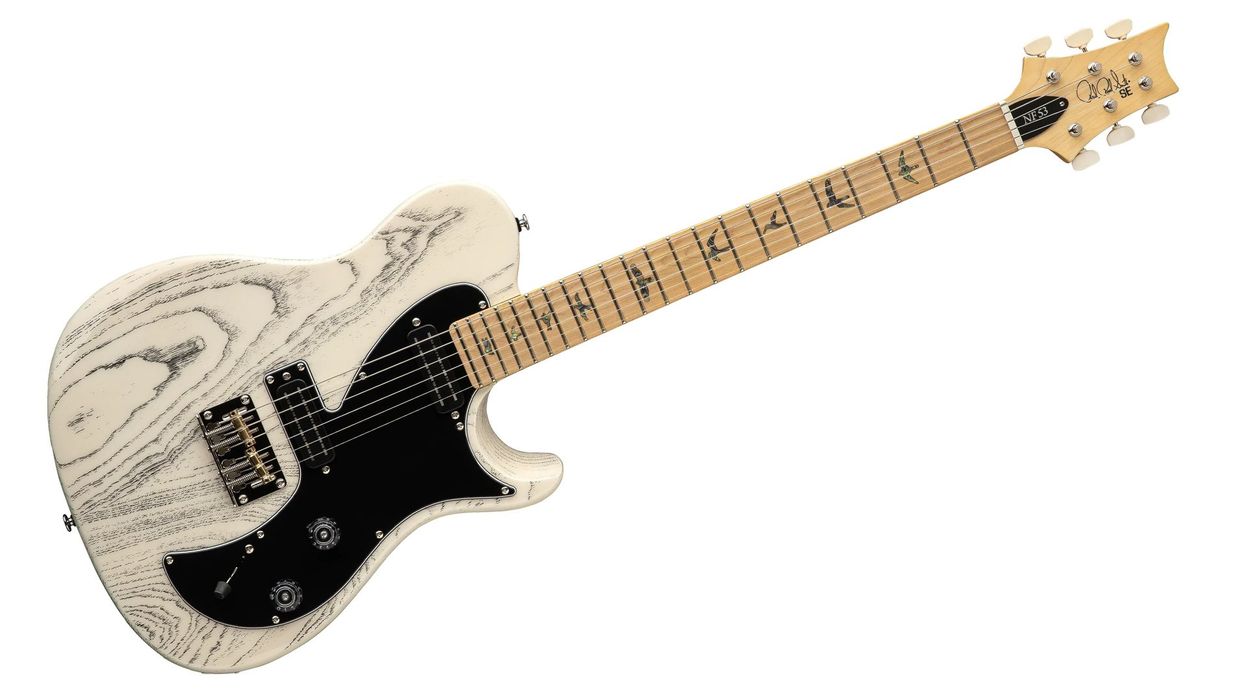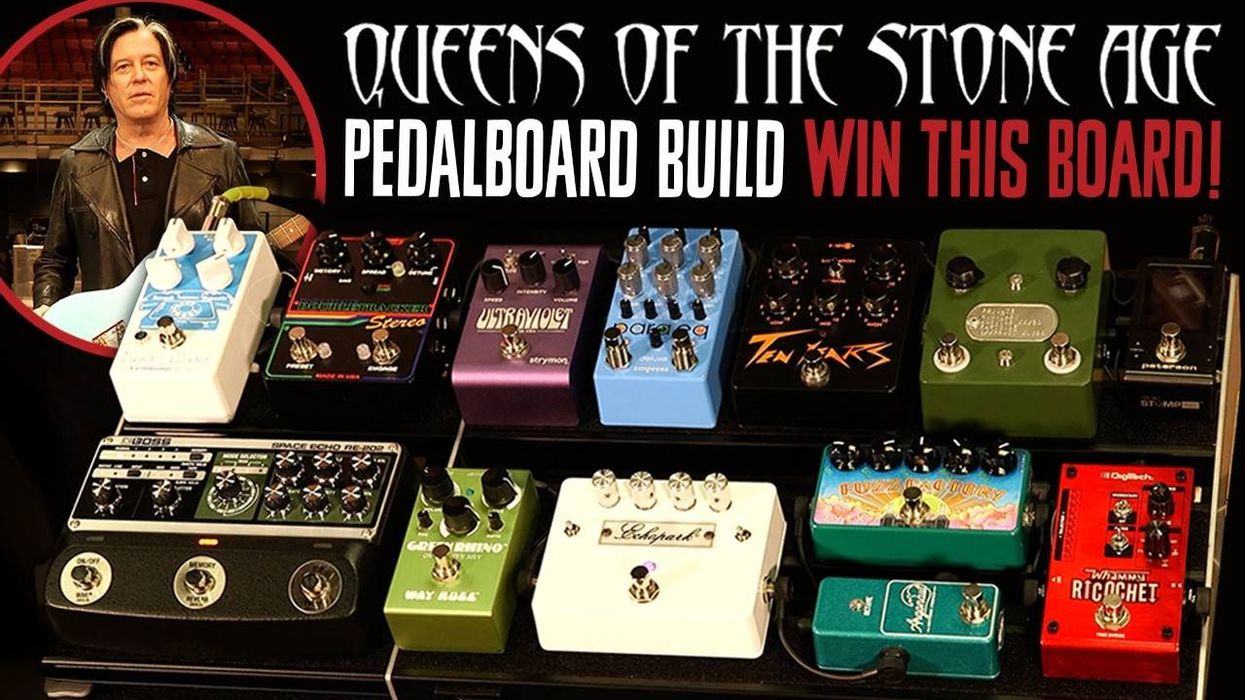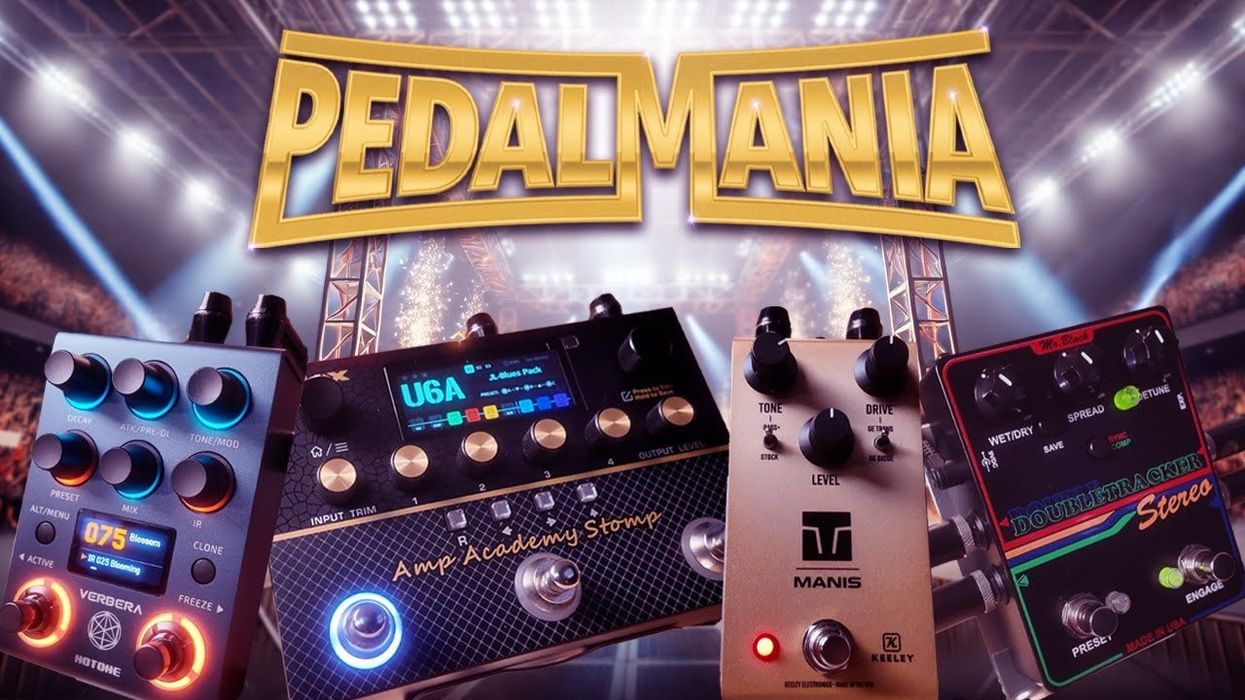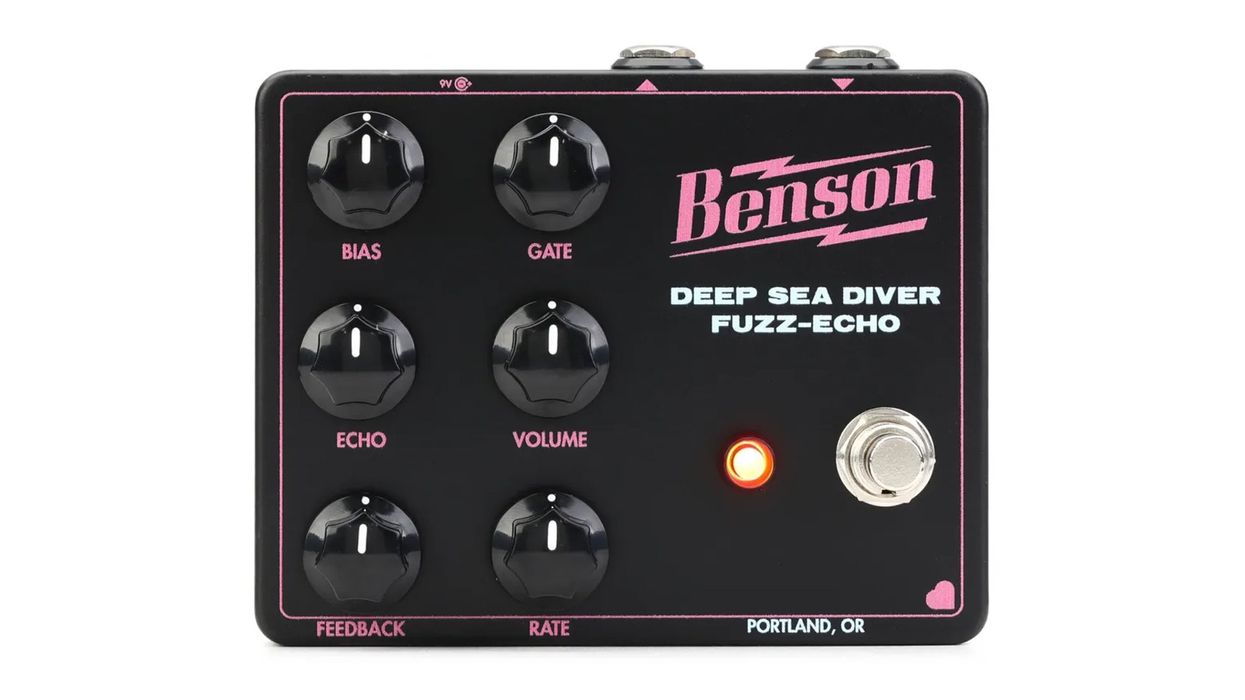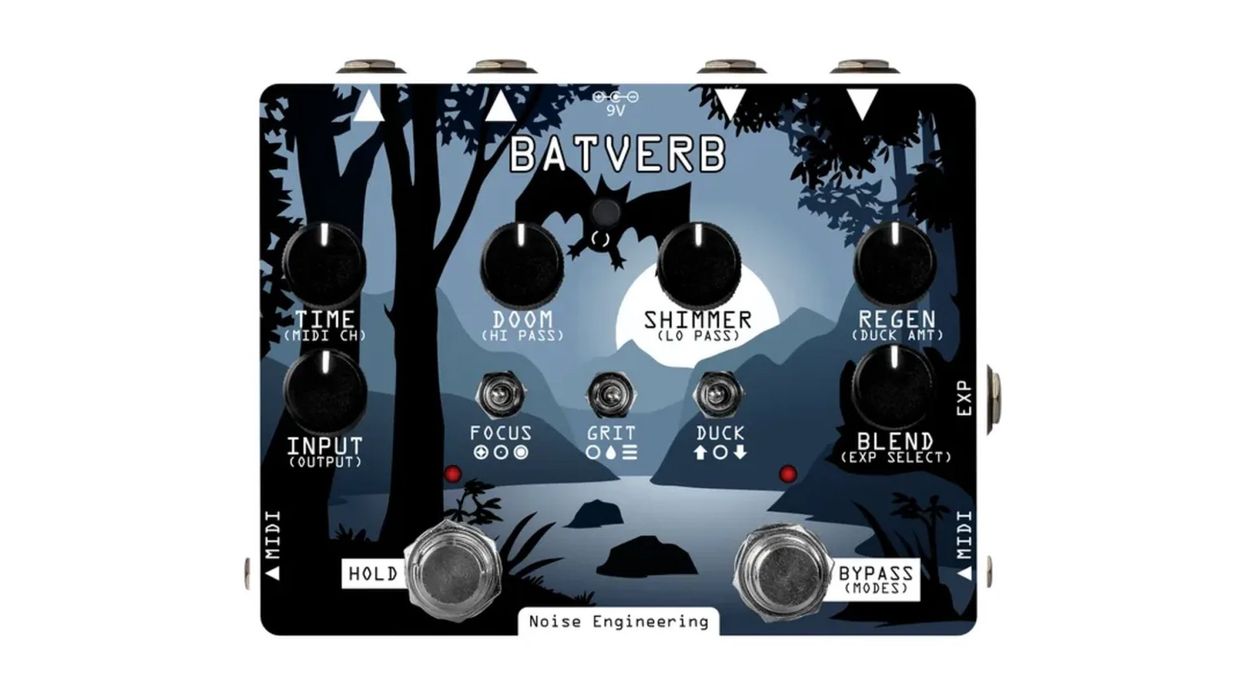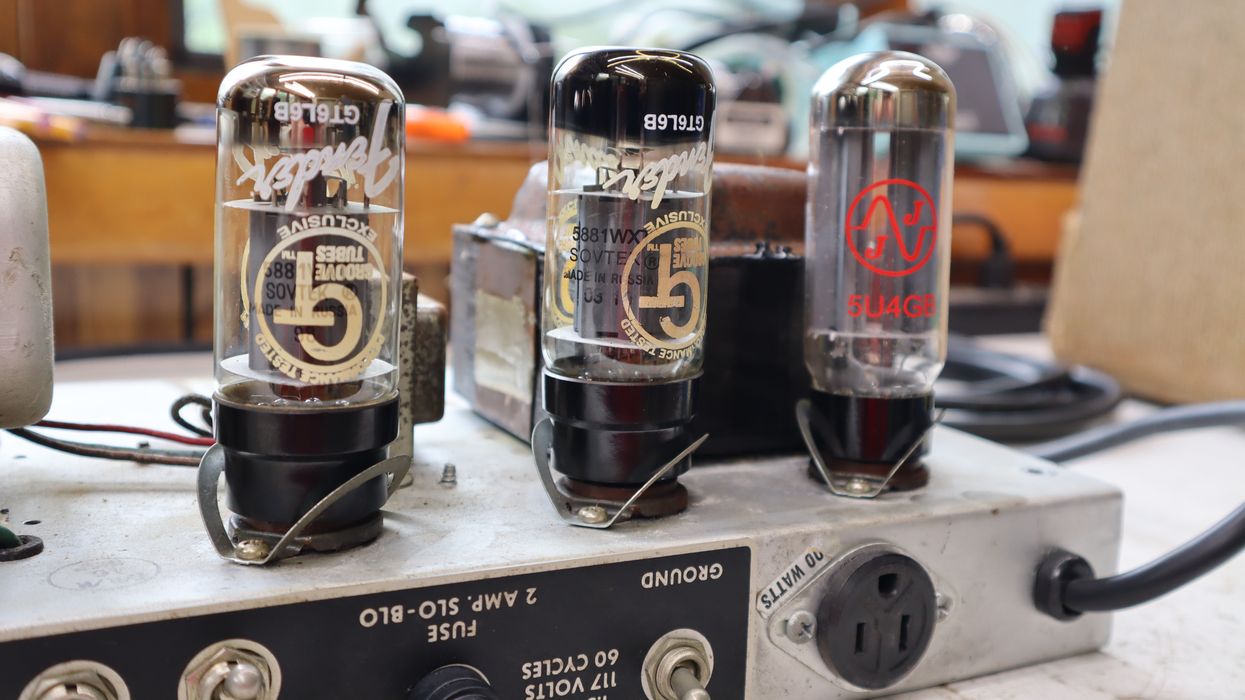Compared to the dynamic germanium Fuzz Face, silicon versions sometimes come off as brutish. And even though they can be sonorously vicious, if dirty-to-clean range and sensitivity to guitar volume attenuation are top priorities, germanium is probably the way to go. The McGregor Classic Fuzz, however, offers ample reminders about the many ways silicon Fuzz Faces can be beastly, sensitive, and sound supreme.
Even though the two BC107B top hat transistors will look familiar to many who have poked around other SFF-style circuits, the Classic Fuzz is not precisely a silicon Fuzz Face clone. It’s distinguished by a low-pass filter “bass” control that true SFFs lack, but which widens its vocabulary extensively. In an A/B test with a solid, archetypal-sounding BC108 Fuzz Face clone, the Classic Fuzz sounded roughly equivalent at the 60-percent mark of the bass control’s range. But the Classic Fuzz was more dimensional, and on either side of the bass control I heard many intriguing tone variations spanning garage-punk snot and corpulent, almost triangle-Big Muff thickness.
Like most SFFs, the Classic Fuzz sounds best with a generous spoonful of amp volume. I ran it with a Fender Vibrolux just on the clean side of breakup. At amp volumes much lower than that, the fuzz voice thinned, the nuanced responsiveness to guitar volume attenuation dropped off, and the range of clean tones became much narrower. In its happy places, though, the Classic Fuzz rips—lending sparkling overdrive colors and banshee-scream aggression to Stratocasters and sounding especially sweet and terrifyingly mammoth with humbuckers
